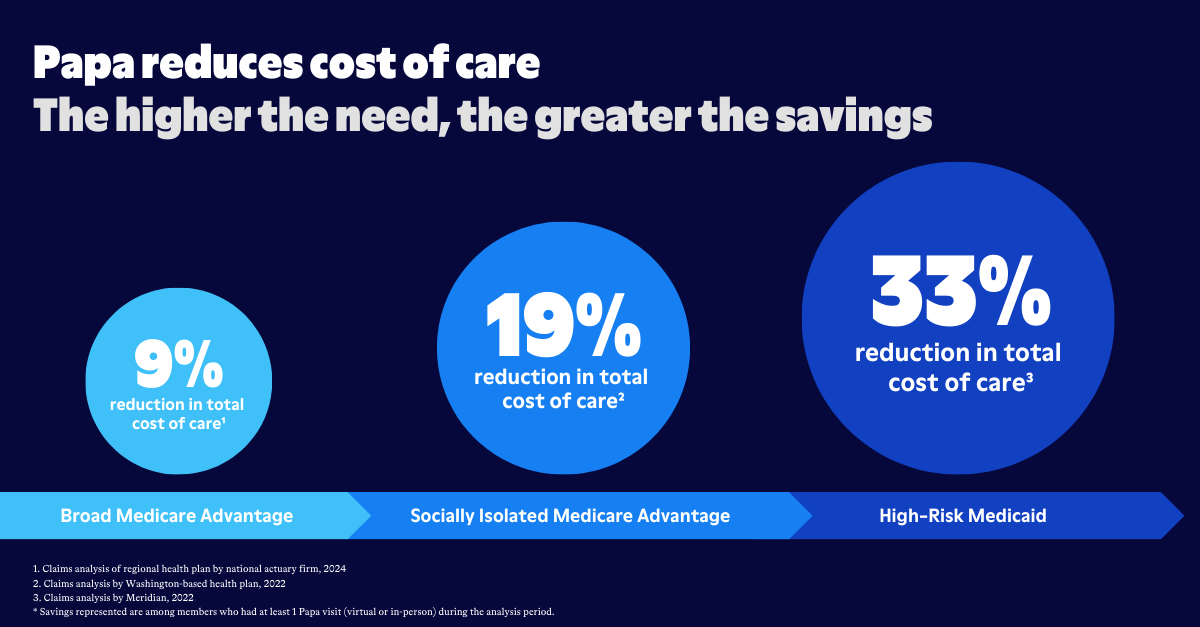
While concerns about the growing impact of loneliness among Americans across all demographics are getting plenty of attention, the risks–and outcomes–of social isolation are especially acute among older adults.
It’s well understood– especially by family members and caregivers of older adults– that declining health is made worse by lack of human contact and engagement. What’s not as well understood is the “why,” especially when it comes to chronic conditions.
Beyond its predictive relationship to physical health, conditions such as heart disease and stroke, loneliness is well-documented as a significant factor in both poor mental health and accidents in the home.
To better understand the mechanisms of how loneliness impacts health, we dug a bit deeper into the research. Here’s what we found out:
Loneliness causes stress
Most of us can easily come up with a short list of life issues that bring on stress–financial strain, job woes, and bad relationships come to mind. And of course, what creates stress for one person may not have the same effect on someone else.
We’re less accustomed to identifying loneliness and social isolation as common sources of stress, but a growing body of research makes the link clear. And while we know that while a certain amount of stress can be biologically beneficial, problems come when that stress is unrelenting, and goes on for a long period of time.
One way to measure stress is through Cortisol levels–the higher the cortisol, the more stressed that person is. In one interesting study, the link between loneliness and stress was demonstrated with high school students. Researchers measured morning cortisol levels in students over a period of time. Each day, they also asked had the students rate how they had felt the day before. On days when students reported feeling loneliness, their respective cortisol levels the next day were 4.77% higher for each 10% increase in feelings of loneliness.
The stress brought on by loneliness may not be considered acute, but prolonged, low-grade stress that can cause change at a cellular level and lead to a host of chronic health problems. Common stress-induced physical problems include high blood pressure, heart disease, obesity, and a weakened immune system (a particular concern as highly transmissible COVID-19 variants continue to circulate.)
Stress-related brain health issues include anxiety, depression, cognitive decline, and even Alzheimer’s disease.
What happens in our bodies when we suffer prolonged stress?

Scientific understanding of the mechanisms of loneliness-induced physical stress has grown substantially over the past couple of decades. The work of Dr. Stephanie Cacioppo and her late husband, Dr. John Cacioppo, was the first to outline the process where the condition of loneliness automatically triggers both biological and behavioral mechanisms.
When someone loses their sense of connection and community, it changes the way they perceive the world around them, and how they interact with others. Chronic loneliness can bring on a feeling of being abused. Because a lonely person is missing out on regular and rewarding interactions with other humans, they become mistrustful.
This state of feeling threatened and distrustful when alone may have helped pre-humans and early humans survive by prompting the fight-or-flight reaction. Part of the fight-or-flight reaction actually creates a protective response in the cells of the immune system: inflammation.
And while inflammation is an essential part of the healing for both injuries and disease, a steady state of inflammation taxes the body on several fronts, leaving a person vulnerable to all kinds of health risks.
“Loneliness acts as a fertilizer for other diseases”
According to Dr. Steve Cole director of the Social Genomics Core Laboratory at the University of California, Los Angeles, “Loneliness acts as a fertilizer for other diseases. The biology of loneliness can accelerate the buildup of plaque in arteries, help cancer cells grow and spread, and promote inflammation in the brain leading to Alzheimer’s disease. Loneliness promotes several different types of wear and tear on the body.”
And the overworked immune cells that are being constantly triggered to produce inflammation can’t do their jobs as effectively when it’s time to fight off a virus or other infection, which in turn can lead to a spiral of other health problems.
The bottom line? Loneliness-induced stress is more than just a state of mind. It can create physical changes at a cellular level that affect the function of many body systems.
Loneliness affects behaviors … that affect health

In addition to the direct biological impact of loneliness, it can lead to behaviors that further undermine a lonely person’s physical and mental health.
While lonely people may not perceive or acknowledge the stress of loneliness, they notice and name the boredom that can come along with being lonely. As social animals, we need the stimulation of interacting with other people. Companionship and shared purpose are ideal foils to boredom, but even the simple, functional exchanges we have as members of a cooperative household give us a certain sense of community, and make us less likely to feel bored and isolated.
People react to boredom in any number of ways. They might eat too much or sleep too much. They might drink excessively, watch TV all day, or allow social media feeds to consume them. Motivation–to eat less, to get out of bed, to be physically active–becomes harder and harder to muster, and the cycle locks in.
Any of the negative behaviors brought on by boredom can have bad consequences for physical and mental health. Add low self-esteem, from the inability to change course, and the villain of stress, with its various consequences, comes into the mix with boredom too.
Stress can compromise decision-making
The impact of stress on executive function and problem-solving has been well-documented. Basically, stress and anxiety slows down and disengages the specific part of of the brain that governs decision-making.
For an older adult absorbing the stress of loneliness and social isolation, even relatively simple decisions and problems that crop up in daily life can be overwhelming. Faced with a problem or decision that seems overwhelming, and lacking trusting relationships with others who could provide assistance, this person might make a poor decision–or no decision at all.
Especially if the situation involves an emerging medical problem, or even physical conditions in the home, failure to act or making a poor decision may create a serious threat to the individual’s well-being and safety.
Loneliness and social isolation both rank high on the list of social factors that impact everyone’s health, and older adults are particularly susceptible to them–even moreso amid the ongoing risk presented by COVID-19. Taking steps to build connection and community to their lives can help to relieve some of that loneliness-induced stress, and head off health problems related to it.
Companion care services can bring a live, helpful human connection into the lives of older adults experiencing loneliness and isolation–and play a vital role in reducing the risk of related health problems.
For more on how companion care services can help your members and their caregivers, download Papa’s Caregiver Benefits Guide.



